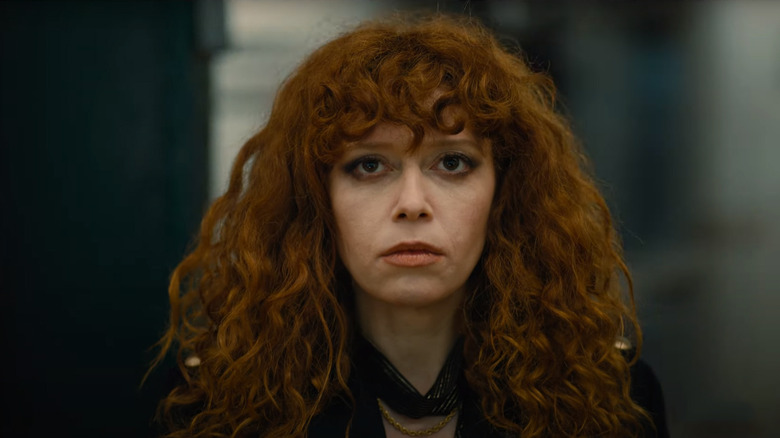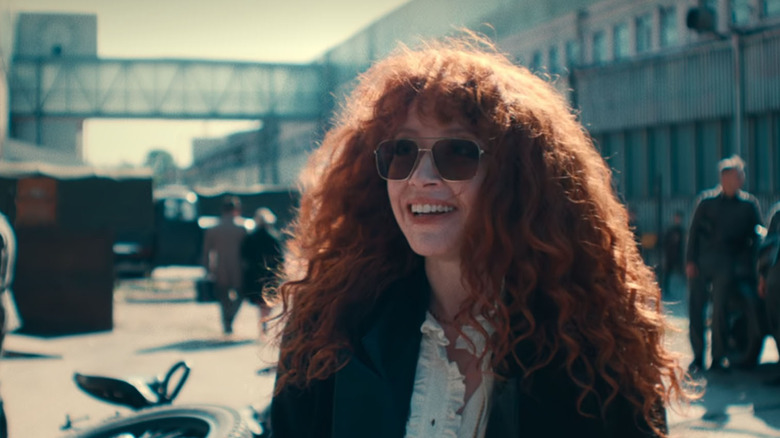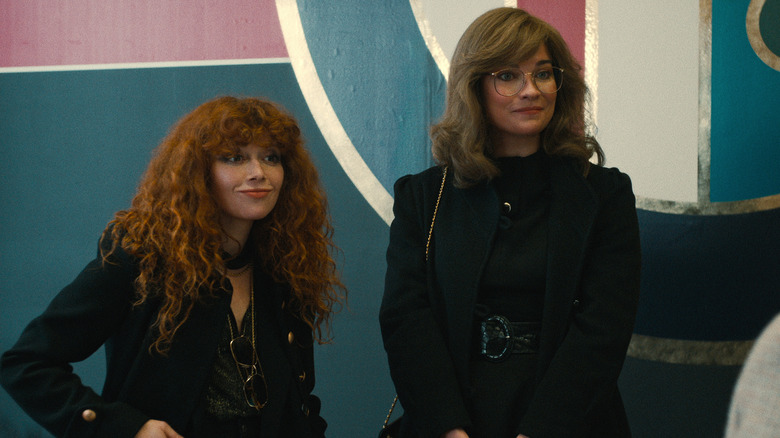Natasha Lyonne Really Learned How To Speak Hungarian For Russian Doll Season 2
For season 2 of the Netflix series "Russian Doll," Natasha Lyonne had to wear a lot of hats. She helped write several episodes of the season, directed episodes 1, 3, and 7, took over as showrunner from season 1 boss Leslye Headland, and starred as Nadia in every single episode. That's a lot to juggle, but the always-game Lyonne took on one additional challenge in bringing season 2 of the time-bending series to life: she actually learned to speak Hungarian for some of her key scenes in Budapest, Hungary.
While many movies and shows would have just let the audience assume they were speaking Hungarian and gone for accented English, Lyonne dedicated as much energy as possible to learning how to speak authentic Hungarian.
Hungarian! Micsoda koncepció!
In an interview with IndieWire, Lyonne explained that while she was certainly willing to take on the challenge on learning Hungarian while also showrunning and starring in a series, she wasn't sure she could pull it off and didn't want to make a joke of it. The other season 2 director, Alex Buono, had to reassure her that she could do it:
"I kept saying, 'Alex, this isn't some Bill and Fred s***. [Bill Hader and Lyonne's ex Fred Armisen created spoof series 'Documentary Now!'] It can't be an impression of Hungarian. I'm going to have to be like Dustin Hoffman in Hungarian! And he was like, 'That is the real s***! You can do this!'"
Lyonne practiced whenever she got a spare moment, working with both acting coach Terry Knickerbocker and Hungarian actress Éva Magyar ("Overlord") to get the pronunciation and rhythm just right. She told IndieWire that she was so engrossed in making sure she did it right that she practiced with the first assistant director during other parts of production, like tech scouts, where the heads of production all walk through the set or location one last time to get the details in place.
The connections between language and history
The Hungarian language lessons helped Lyonne unlock more of her character's past along with her own, as both Nadia and Lyonne's grandparents were Hungarian and survived the Holocaust. She joked that one of the most annoying parts about therapy was "they always want to talk to you about this matrilineal business," but tracing her heritage was integral to unlocking the themes of season 2. It helped her think of trauma, especially inherited trauma, in a whole new light, and she was able to put that experience into the show:
"You really have to use that specificity, especially now that everyone's dead. But I heavily fictionalized around my family. I think that there's questions around that time I'm very moved by more globally: What it is the tether from Hitler to all of us? Like, we throw around Hitler so loosely in modern times. Hitler's almost a punchline. There was this whole generation of children of Holocaust survivors who really come by their case study very honestly."
"Russian Doll" season 2 is largely about how the Holocaust changed Nadia's family line forever, starting with her escaping grandmother and transferring trauma all the way down to Nadia. Generational trauma is still being studied and we've only barely begun to understand it, but it's worth noting that many children and grandchildren of Holocaust survivors share similar traits, including a protectiveness over their ancestors. They're what Dr. Yael Danieli, PhD calls "reparative adaptational impacts": the idea that survivors' offspring try to fix the world for their parents, their grandparents and themselves. Sounds a bit like Nadia, hmm?
Season 2 of "Russian Doll" is now streaming on Netflix.


